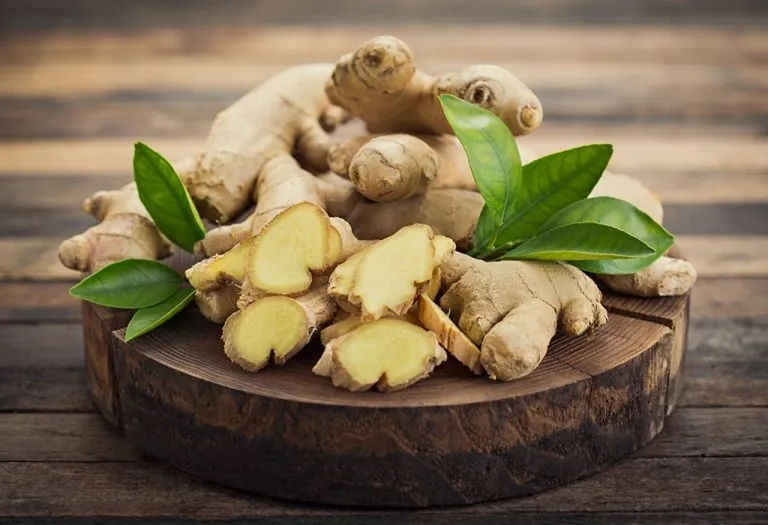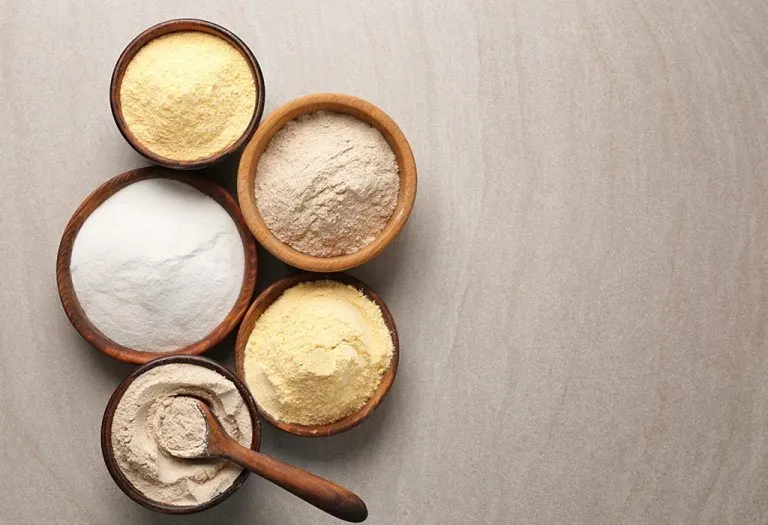What Are Prebiotics, and How Do They Serve as Food for the Beneficial Bacteria in the Gut?
- What Are Prebiotics?
- How Prebiotics Benefit Babies
- Sources of Prebiotics for Babies
- Timing: When It’s Most Important
- FAQs
From the very first days of a baby’s life, a fascinating community of microbes begins to take root in their digestive systems. Among them, beneficial strains like Bifidobacterium and Lactobacillus play a vital role. Prebiotics act as the fuel that helps these good microbes flourish. When nourished properly, they multiply, support the immune system, aid digestion, and provide protection against common infections. But when this delicate balance is disrupted, babies may face challenges such as colic, diarrhoea, allergies, or even a higher risk of autoimmune issues (1).
Before we deep dive into how prebiotics benefit babies, let’s have a quick round-up on the basics.
What Are Prebiotics?
They are non-digestible plant fibres (like certain carbohydrates) that our bodies can’t break down, but gut microbes can.
- How they work: They pass through the digestive system and reach the colon, where beneficial bacteria such as Bifidobacteria and Lactobacillus feed on them.
- Why they matter: By nourishing these good microbes, prebiotics help improve digestion, strengthen the immune system, reduce harmful bacteria, and even support nutrient absorption (2).
For babies, prebiotics are found naturally in human breast milk (as prebiotic human milk oligosaccharides, HMOs) and fortified infant formulas (3).
How Prebiotics Benefit Babies
Below are key areas where research has shown prebiotics make a difference, especially in early life.
1. Balancing the Gut Microbiome
The gut is home to trillions of microbes — some act like helpful citizens, while others can be troublemakers. Prebiotics nourish the beneficial bacteria (such as Bifidobacteria), helping them thrive and keeping the harmful microbes in check.
Research shows that infants fed nutritional solutions enriched with prebiotics develop a gut microbial community more similar to that of breastfed babies — particularly in the composition of their faecal microbiota and the number of beneficial bacteria (4).
Early microbiome balance is crucial for maintaining a healthy digestive system. It can influence the risk of gastrointestinal issues, allergies, obesity, and other immune-related conditions later in life (5). While the evidence is still growing, numerous studies suggest that a healthier early gut microbiome is associated with better outcomes.
2. Building a Strong Gut Foundation
The lining of the intestine (epithelial barrier) is the first line of defence. It helps in the absorption of nutrients—especially calcium, magnesium, iron, and zinc—vital for growing children, while keeping pathogens and toxins out.
A well‐balanced microbiome, supported by prebiotics, promotes the development and maintenance of the gut lining. Without this, babies may be more susceptible to infections, leaky gut, or inflammation. Research shows prebiotic, probiotic, and synbiotic supplemented formulas notably modified intestinal antibody production and improved bowel movements in babies (6). So yes, prebiotics are a win-win!
3. Boosting Immunity
The makeup of the gut microbiome in infants can indicate the likelihood of disease risk and its progression. A healthy gut microbiome, supported by prebiotics, helps teach the immune system which threats are serious (pathogens) and which are benign (such as food and harmless bacteria).
Establishing a symbiotic relationship between the immune system and the gut microbiome, with the help of prebiotics, significantly influences the chances of developing or preventing diseases in the future (7). This means fewer infections, better vaccine responses, and stronger overall immunity.
Sources of Prebiotics for Babies
1. Breast milk
Breast milk is the gold standard for nutritional requirements for developing babies. It hosts a diverse mix of human milk oligosaccharides (HMOs), which serve as prebiotics, with a majority of beneficial microbiota, especially Bifidobacterium species (4). For many benefits, exclusive breastfeeding is recommended for the first 6 months (8).
2. Nutritional Solutions With Prebiotics
Several baby feeds come supplemented with prebiotics, such as galacto-oligosaccharides (GOS), fructo-oligosaccharides (FOS), and polydextrose (9). Research suggests that the addition of prebiotics to infant feeds can beneficially influence the gut microbiome, especially by increasing levels of Bifidobacterium, without any negative effect on growth (10).
Prebiotic-supplemented babies have a better stool consistency, higher concentration of Bifidobacteria in their intestine, and lower stool pH compared to babies on a non-supplemented standard diet. Prebiotics, being safe for infants and babies, bring supplemented infant feeds closer to breast milk, which is considered the gold standard (9).
3. Dietary Transitions
As solids are introduced (at around 6 months), including fibre-rich, prebiotic foods (in age-appropriate forms) helps continue supporting gut health. For example, cooked and cooled apples, bananas, and oats.
Timing: When It’s Most Important
The early life period (birth to about 2-3 years) is critical. Microbial colonisation happens rapidly. The gut, immune system, and brain are all developing in coordination. Interventions (breastfeeding, prebiotic supplementation, and reduction of unnecessary antibiotics) during this time have larger effects.
While prebiotics are generally safe, they should not replace medical advice. Some infants have digestive sensitivities; too much fibre/prebiotic at once may cause gas, bloating, or discomfort. Formula changes must be guided by paediatricians.
Secondly, quality matters. Not all supplements are made equal. Dose, type of prebiotic, purity, and how it is processed—all influence the effectiveness of a formula. Parents should choose baby supplements vetted by certified paediatricians.
FAQs
1. Is breastfeeding enough to provide prebiotics?
Yes, human breast milk naturally contains HMOs, which are among the most potent prebiotics for infants. However, when breastfeeding isn’t possible (or only partly possible), nutritional solutions with added prebiotics can help babies develop to a great extent.
2. When should babies start getting prebiotics (or prebiotic-rich foods)?
Breast milk and prebiotic-nutritional solutions are primary sources of prebiotics that babies are introduced to from birth. 6 months+ babies can be introduced to prebiotic fibres in the form of pureed or soft foods under paediatric guidance.
3. How do prebiotics differ from probiotics? Do babies need both?
Prebiotics are the food for gut microbes, whereas probiotics are live beneficial microbes themselves. Babies benefit from both prebiotics and probiotics.
4. Are prebiotics included in all infant nutritional solutions, and how to choose a good one?
Not all baby feeds include prebiotics. Therefore, when choosing:
- Look for products that mention GOS, FOS, or other clinically studied oligosaccharides.
- Check whether there are research or clinical trials showing benefits, especially in full-term infants.
- Talk with your paediatrician about any special needs (premature baby, allergies, digestive issues).
Prebiotics are far more than a buzzword on parenting blogs or baby product labels. They play a vital role in shaping an infant’s gut microbiome, strengthening the gut lining, aiding in nutrient absorption, supporting digestion, and helping the immune system learn and adapt. For today’s millennial parents, who are often inundated with health advice, understanding prebiotics is key, as early gut health lays the foundation for lifelong wellness.
Every baby is unique, and there’s no one-size-fits-all approach. The most crucial step is to personalise care — working closely with your paediatrician, observing how your baby responds, and making thoughtful, gradual adjustments. By doing so, you’re helping build one of the strongest possible foundations for your child’s future health.
Also Read:
Homemade Baby Food
Healthy Food Pyramid for Kids
Finger Foods for Baby to Eat and Avoid
Best Baby Foods You Should Give to Eat
Baby Nutrition – List of Essential Nutrients to Feed Your Baby
Was This Article Helpful?
Parenting is a huge responsibility, for you as a caregiver, but also for us as a parenting content platform. We understand that and take our responsibility of creating credible content seriously. FirstCry Parenting articles are written and published only after extensive research using factually sound references to deliver quality content that is accurate, validated by experts, and completely reliable. To understand how we go about creating content that is credible, read our editorial policy here.
1. ScienceDirect – Use of probiotics and prebiotics in infant feeding
2. Mayo Clinic – What are probiotics and prebiotics?
3. PubMed Central – Prebiotics in New-Born and Children’s Health
5. PubMed Central – Prebiotics in the Infant Microbiome: The Past, Present, and Future
7. ScienceDirect – Microbiota and gut immunity in infants and young children
8. World Health Organization – Breastfeeding
9. PubMed Central – Prebiotics in infant formula














.svg)


















